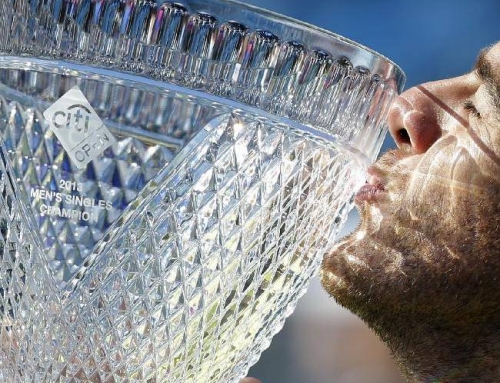 Tennis is a peculiar sport. For the most part, players’ rankings are determined by how many tournaments they play and how well they do in each tournament. Some, who follow tennis rather sporadically, tend to place the emphasis of who is playing and who is winning.
Tennis is a peculiar sport. For the most part, players’ rankings are determined by how many tournaments they play and how well they do in each tournament. Some, who follow tennis rather sporadically, tend to place the emphasis of who is playing and who is winning.
To give an example, let’s look at the women’s tour. For years, Serena was both dominant and non-dominant. Serena was injured so often that she played far fewer tournaments than most players. But the few tournaments she played, especially Slams, she would perform very well. Some claimed this alone should be enough to make Serena number 1. Who cares how few tournaments she played, and how the other women actually fulfilled their obligations by playing telling. Clearly, Serena was better than everyone and deserved to be number 1.
But let’s think about this in another context. Suppose the New England Patriots, an American football team, could take weeks off where they did not play. Where the regular teams still play each week, the Patriots only play 6 of the 16 games. And, let’s say, for sake of example, they manage to get to the playoffs and they tend to win the Super Bowl. Some would criticize the team for not playing its share of games, and they shouldn’t qualify to be in the playoffs, and it’s all unfair that the Patriots can do this.
So it is in tennis.
Each player is typically replacing points they lost in one year with points gained in the following year. For example, Novak Djokovic was the runner up in the US Open for the second year in a row. Thus, he lost the points he gained as finalist from 2012, only to replace it with points he gained from being a finalist in 2013. By contrast, Nadal, who didn’t play the 2012 US Open, had no points to defend, but he won the US Open gained far more points than Djokovic. He won 2000 points for the title, but he lost no points.
Because Nadal didn’t play after Wimbledon in 2012, every point he is gaining is adding to a huge total. Meanwhile, Djokovic is replacing points from last year with points from this year. For example, Djokovic won Beijing last year and earned 500 points. He won it again this year, so the 500 points he picked up merely replaced the 500 points he lost last year.
All Nadal had to do was reach the final to become number 1.
For Djokovic, winning Beijing was important. He already had good success in Beijing having won in 2009, 2012, and 2012 (yet he skipped it in his best year in 2011). What he didn’t have success is beating Rafael Nadal. Djokovic had lost to Nadal the last three times they met which were the US Open, Montreal, and the French Open. He did beat Rafa in Monte Carlo, but lost the previous three meetings.
Nadal had shown a level of aggression that was giving Djokovic trouble. In particular, Djokovic blamed his serve for his problems. Another problem was reliably hitting the down-the-line backhand which gave him issues.
In the finals, Djokovic really did well on serve. On first serve, he won just over 90% of points, and on second serve he won 76% percent, just short of the 79% that Nadal was winning on first serves. By contrast, Nadal was only winning 1/3 of his service points on his second serve.
Djokovic never faced break point on his serve, while Nadal was broken in half his break points.
Djokovic basically broke once early in the first set, and broke once early in the second set, and held to win each set.
For his part, Nadal never quite got into the match. Djokovic played aggressive, while Nadal seemed to not chase down shots that he was making in the US Open.
Nadal was even asked, in a post-match interview, whether he was ailing. Nadal just said Djokovic was playing too well. Djokovic was also asked an embarrassing question. Having made an effort to learn some Chinese, the fans were generally favorable to Djokovic although Nadal had his fans too. The interviewer asked when he would become number 1 again.
Djokovic merely congratulated Nadal on having a great 2013, and didn’t address the question.
Despite Nadal’s win, Djokovic does remain close. However, Nadal is pretty much winning free points from now through the Australian Open, and short of an injury, he’ll likely separate himself more from Djokovic who still has to defend points through the Australian Open.



![[Basel] del Potro wins Basel over Federer for second consecutive year](https://www.essentialtennis.com/wp-content/uploads/2013/10/20131028delpo-500x383.jpg)


![[Bucharest/Barcelona] Rosol wins first title, Nadal keeps winning titles](https://www.essentialtennis.com/wp-content/uploads/2013/04/20130428lukasjpg-500x383.jpg)